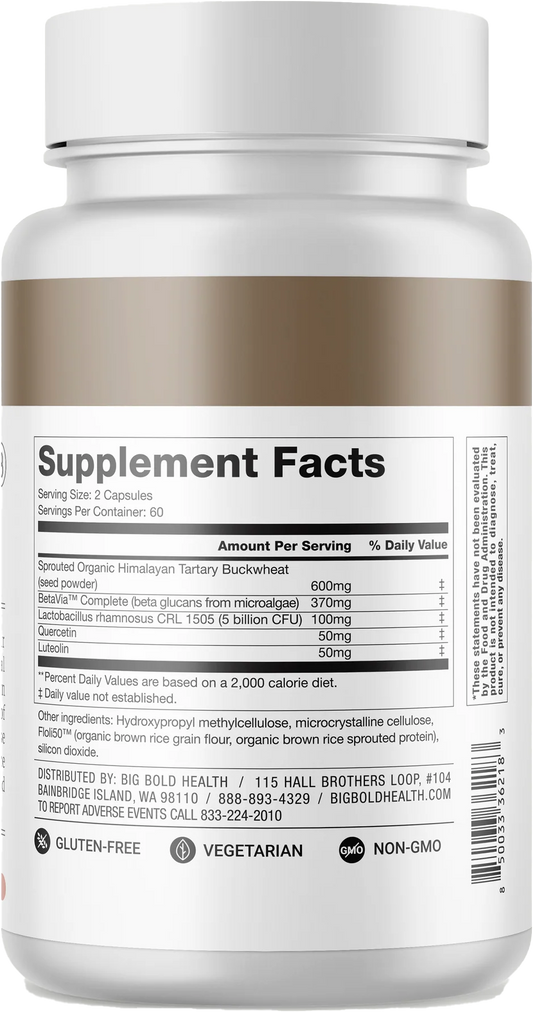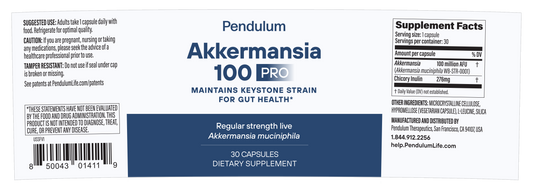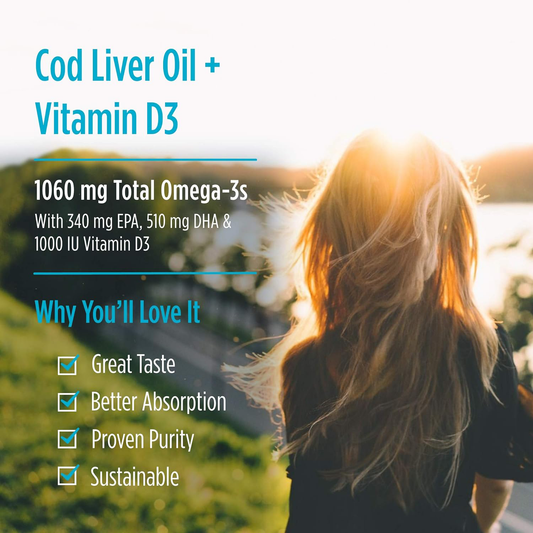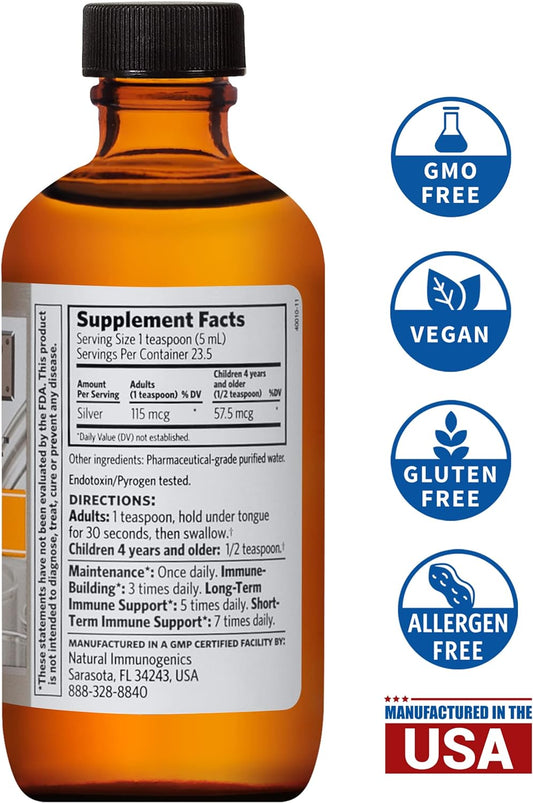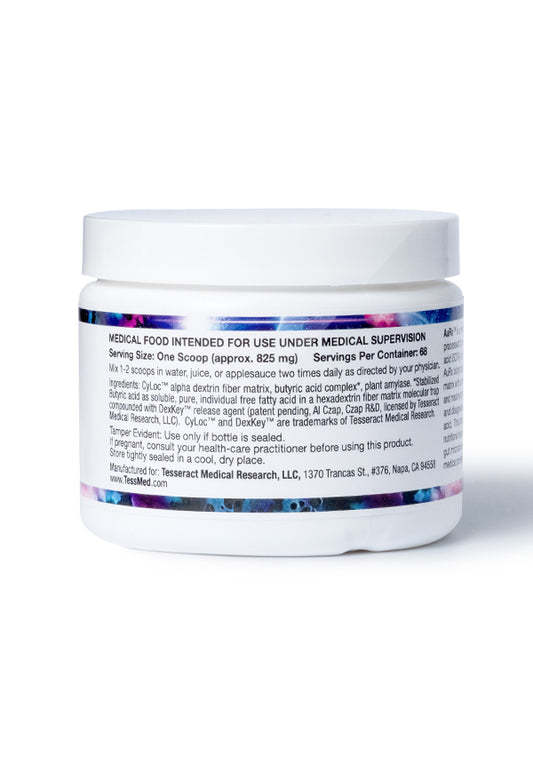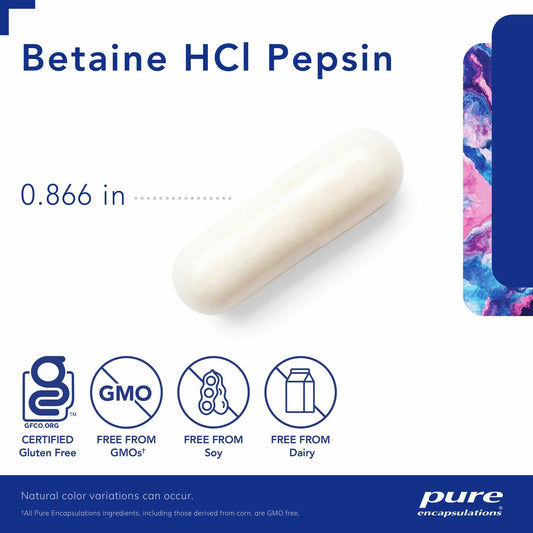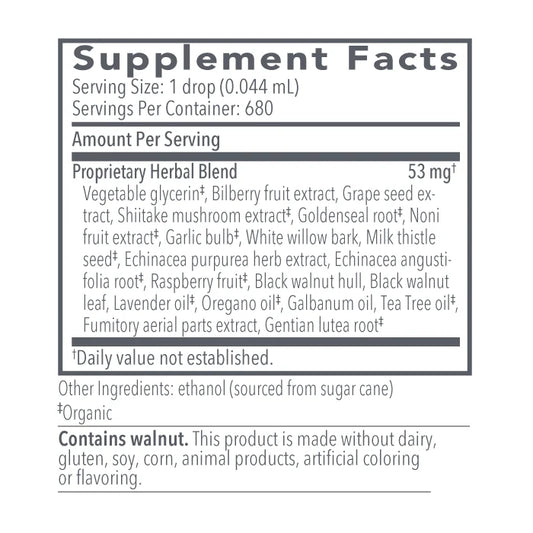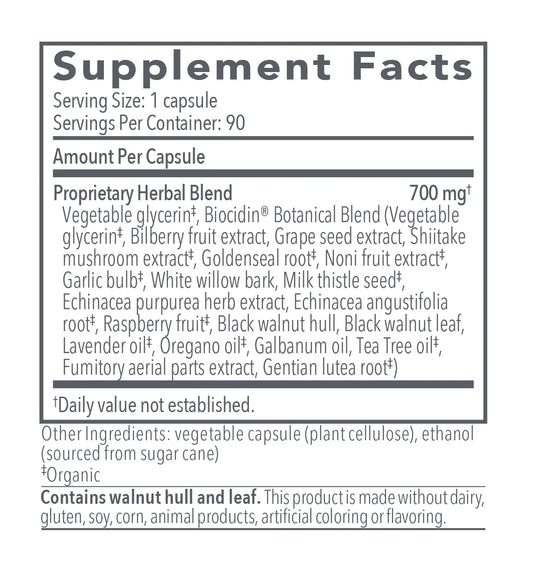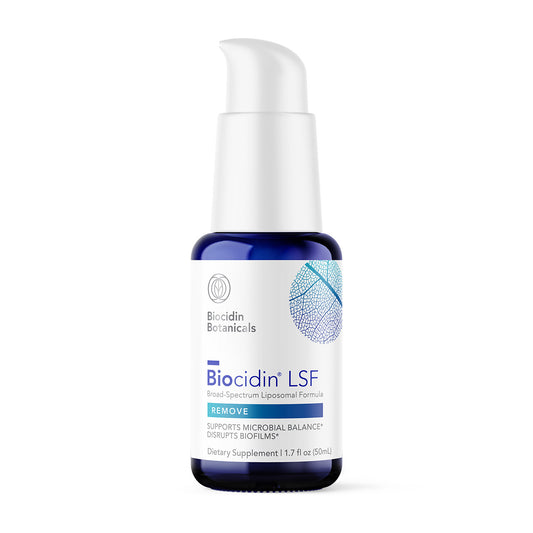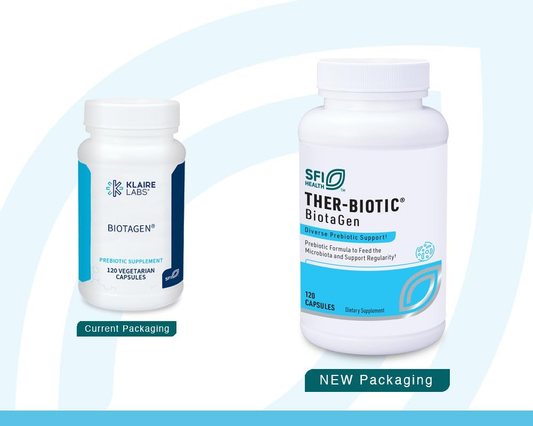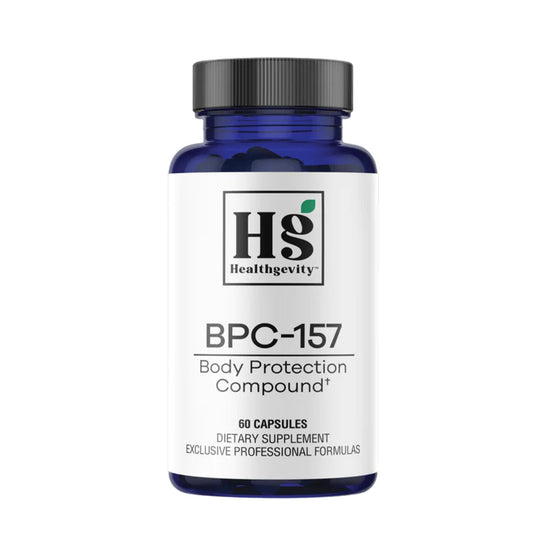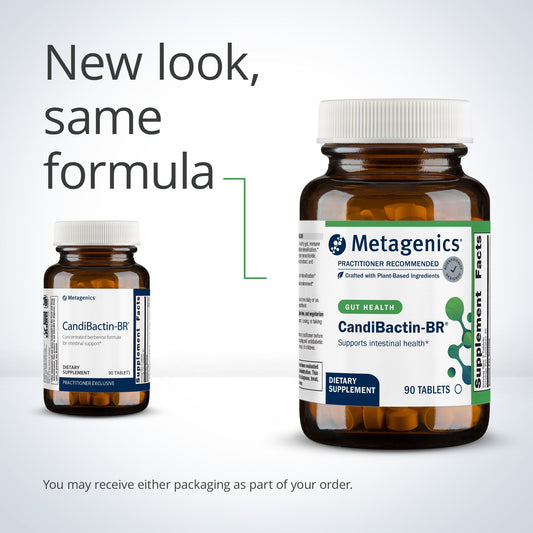The Most Overlooked Cause of Aging and Disease: Your Microbiome

Of all the body’s systems, the gut ecosystem might be the most complex—and, perhaps, the most critical to longevity and disease prevention.
Though medicine has long dismissed the gut as an isolated system of tubing with little import outside of acid reflux and irritable bowel issues, we now know that imbalances in the gut are inextricably linked to inflammation, accelerated aging, and nearly all chronic disease including cancer, diabetes, heart disease, and dementia.
In fact, scientists have effectively been able to reverse aging and disease in aged mice simply by modifying their gut microbiome with fecal transplants from young, healthy mice—and vice versa, accelerating aging and disease in young mice by disrupting their microbiome with transplants from older mice.
Why did this work? Because the gut, more than “just a tube,” is a microbiome that’s home to some five thousand species of bacteria and as many bacterial cells (roughly 30 trillion) as we have human cells.
When in balance (symbiosis), these bacteria keep the body in health. Yet when out of balance (dysbiosis), bad bacteria can grow like weeds, outnumbering good bacteria and creating a toxic environment that weakens the gut barrier, allowing waste products like undigested food particles and bacterial toxins to leak into the bloodstream—driving chronic inflammation and increasing the risk of virtually everything from obesity and auto-immune disease to heart disease, dementia, diabetes, and cancer (the “four horsemen” of the aging apocalypse).
The beneficial gut microbe Akkermansia muciniphila, for example, stimulates the secretion of glucagon-like peptide-1 (GLP-1), which plays a crucial role in regulating glucose levels and metabolism, and numerous studies have linked low levels of the microbe to diabetes , insulin resistance, obesity, and metabolic syndrome. Similarly, gut microorganisms can synthesize metabolites that trigger inflammation and cardiometabolic diseases—and levels of certain gut bacteria, such as Enterobacteriaceae and Streptococcus, are strongly linked to atherosclerosis. More broadly, systemic inflammation from dysbiosis can facilitate the development and progression of cancer as well as neurological disorders through the gut-brain axis.
It's no wonder Americans are facing unprecedented and exponential illness, given that 60 percent of our calories come from ultra-processed foods that fuel these “bad bugs” and destroy the microbiome.
Because diversity in the gut microbiome also tends to decrease with aging, creating an opportunistic environment for bad bugs to thrive, aging can often accelerate gut issues.
Fortunately, there are simple strategies we can take to restore the gut once we understand how it functions.
Tend to Your Inner GardenGut bacteria are picky eaters. But we know what they like and don’t like. Bad bacteria thrive on starches, sugars, and ultra-processed foods. Good bacteria feed on prebiotic fiber (avocados, artichokes, asparagus, berries, peas, chia seeds, and pistachios), probiotics (fermented foods like sauerkraut, pickles, tempeh, miso, natto, and kimchi), and polyphenols in colorful plants (olive oil, turmeric, pomegranate, cranberries, green tea).
So, significantly reducing sugars and starches, especially as part of processed foods, and upping your intake of prebiotic, probiotic, and polyphenol-rich foods can help bring your gut into balance.
Because you want to foster a diversity of beneficial gut bacteria, you also want to aim for diversity in your diet, e.g., eating a variety of polyphenols from red, yellow, green, purple, and orange vegetables.
Consider ColostrumNumerous studies have shown that supplementing with colostrum has a remarkable ability to strengthen and repair the gut wall and prevent intestinal permeability, as colostrum is rich in growth factors and bioactive compounds that help repair the intestinal lining; antibodies that protect the gut from pathogens; anti-inflammatory components that reduce inflammation; and milk oligosaccharides that act as prebiotics to support a healthy microbiome.
Take a Daily Probiotic and PrebioticEven if you’re eating all the right things—and eliminating the wrong things—you may need some outside assistance maintaining plentiful and diverse gut bacteria and repairing the gut lining.
Probiotics help populate your gut with beneficial strains of bacteria and are critical to protecting and rebuilding the gut. They also modulate intestinal function, improve immune function, are anti-inflammatory, and help us break down food into absorbable nutrients. Prebiotics, meanwhile, are a form of soluble fiber that feed good bacteria in the gut. Some of my favorite brands for revitalizing the gut and maintaining gut health are Microbiome Rejuvenate, BiotaGen Capsules, and BiotaGen Powder.
Avoid Gut Busting MedicationsIronically, many of the drugs commonly prescribed to alleviate gut problems also cause gut problems, particularly acid-blocking medications such as Prilosec, Prevacid, and Nexium, which prevent the absorption of essential nutrients and can lead to dysbiosis in the gut.
Other medications that can damage the gut include antibiotics, steroids, birth control, and anti-inflammatories like ibuprofen and aspirin. (For inflammation and pain relief, consider curcumin, an anti-inflammatory compound found in turmeric that’s proven comparable in studies to NSAIDs like ibuprofen—and, as a bonus, also happens to support gut health.)
Give Up Gut-Damaging Gluten Even if you’re not gluten-sensitive, gluten can trigger inflammation in the gut that increases intestinal permeability (leaky gut). Modern wheat gluten is particularly inflammatory, as it has far more inflammatory proteins than ancient wheat and is often sprayed with glyphosate (a carcinogenic herbicide that’s destructive to the microbiome as well as our soil and water).Does this mean you should hit the gluten-free aisle? Not exactly. Many industrial additives, thickeners, emulsifiers, and gums that are added to gluten-free foods (such as microbial transglutaminase and carrageenan) can also cause gut damage and leaky gut. So be weary of ingredients you don’t recognize or can’t pronounce and aim to get as much of your nutrients as possible from whole food sources.
If you want to live a long and healthy life, it is essential to tend to your inner garden: the microbiome.
References
- Parker A, Romano S, Ansorge R, et al. Fecal microbiota transfer between young and aged mice reverses hallmarks of the aging gut, eye, and brain. Microbiome. 2022;10(1):68. Published 2022 Apr 29. doi:10.1186/s40168-022-01243-w
- Ferranti EP, Dunbar SB, Dunlop AL, Corwin EJ. 20 things you didn't know about the human gut microbiome. J Cardiovasc Nurs. 2014;29(6):479-481. doi:10.1097/JCN.0000000000000166
- Rodrigues VF, Elias-Oliveira J, Pereira ÍS, et al. Akkermansia muciniphila and Gut Immune System: A Good Friendship That Attenuates Inflammatory Bowel Disease, Obesity, and Diabetes. Front Immunol. 2022;13:934695. Published 2022 Jul 7. doi:10.3389/fimmu.2022.934695
- Hasani A, Ebrahimzadeh S, Hemmati F, Khabbaz A, Hasani A, Gholizadeh P. The role of Akkermansia muciniphila in obesity, diabetes and atherosclerosis. J Med Microbiol. 2021;70(10):10.1099/jmm.0.001435. doi:10.1099/jmm.0.001435
- Noor R, Naz A, Maniha SM, et al. Microorganisms and cardiovascular diseases: importance of gut bacteria. Front Biosci (Landmark Ed). 2021;26(5):22-28. doi:10.52586/4921
- Beyond the brain: The gut microbiome and Alzheimer’s disease. National Institute on Aging. Published June 12, 2023.
- Ser HL, Letchumanan V, Goh BH, Wong SH, Lee LH. The Use of Fecal Microbiome Transplant in Treating Human Diseases: Too Early for Poop?. Front Microbiol. 2021;12:519836. Published 2021 May 13. doi:10.3389/fmicb.2021.519836
- Paultre K, Cade W, Hernandez D, Reynolds J, Greif D, Best TM. Therapeutic effects of turmeric or curcumin extract on pain and function for individuals with knee osteoarthritis: a systematic review. BMJ Open Sport Exerc Med. 2021;7(1):e000935. Published 2021 Jan 13. doi:10.1136/bmjsem-2020-000935
- Hałasa M, Maciejewska D, Baśkiewicz-Hałasa M, Machaliński B, Safranow K, Stachowska E. Oral Supplementation with Bovine Colostrum Decreases Intestinal Permeability and Stool Concentrations of Zonulin in Athletes. Nutrients. 2017;9(4):370. Published 2017 Apr 8. doi:10.3390/nu9040370
- Dziewiecka H, Buttar HS, Kasperska A, et al. A Systematic Review of the Influence of Bovine Colostrum Supplementation on Leaky Gut Syndrome in Athletes: Diagnostic Biomarkers and Future Directions. Nutrients. 2022;14(12):2512. Published 2022 Jun 17. doi:10.3390/nu14122512
Related Longevity Articles
Microbiome Support
-
Microbiome Rejuvenate
Regular price $110.00 / 120 CapsulesRegular priceUnit price / per -
Akkermansia
Regular price $42.00 / 30 CapsulesRegular priceUnit price / per -
Arctic-D Cod Liver Oil - Lemon
Regular price $33.95 / 48 TeaspoonsRegular priceUnit price / per -
Argentyn 23 Bio-Active Silver Hydrosol Liquid 4 oz. (DC)
Regular price $34.99 / 4oz LiquidRegular priceUnit price / per -
Betaine HCL Pepsin
Regular price $51.20 / 250 CapsulesRegular priceUnit price / per -
BiotaGen Capsules
Regular price $35.99 / 120 CapsulesRegular priceUnit price / per -
BPC-157
Regular price $149.00 / 60 CapsulesRegular priceUnit price / per -
CandiBactin-AR
Regular price $51.75 / 60 Softgel CapsulesRegular priceUnit price / per -
CandiBactin-BR
Regular price $51.75 / 90 TabletsRegular priceUnit price / per
Login
- Choosing a selection results in a full page refresh.
- Opens in a new window.









